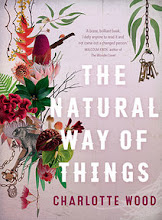
By Wendy Cavenett
A randy academic confronts his own mortality in Philip Roth’s latest novel, The Dying Animal.
It’s human nature to exchange one fear for another, and the older we become, the more the fear builds. In our advancing years, death is arguably the most fearful of them all. To borrow a phrase from Rushkin, Philip Roth’s The Dying Animal “affirms from within” that exquisite sense of life and the equally devastating sense of losing it. And it is this constant confrontation with mortality that forms the basis of Roth’s latest book.
Critic and part-time university lecturer, David Kepesh (protagonist of Roth’s earlier novels The Breast and The Professor of Desire), left his wife and son Kenny in the ‘60s for the sake of personal freedom. Now 70, he tells of an obsessive affair that began back in 1992, when he was a strapping 62-year-old, with a beautiful Cuban exile, Consuela Castillo.
She isn’t the artist, but “the art itself”. Their affair lasts little more than a year, but it devastates the aging professor, then—on the eve of the new millennium—the 32-year-old re-enters his life.
Roth, the great stand-up comic of Jewish-American literature, has written one of his most harrowing, and explicit works on male sexual desire, eros, and the imminence of death. There is little humour in this slim volume, in which Roth uses discourse rather than plot or dialogue to propel the story to its conclusion.
In spare, beautifully rendered prose, Roth undertakes a huge task in very few pages: he deconstructs attraction, obsession, and marriage, as well as the illusion of Platonic love, exile, and human decay. There are some fascinating reflections about the ‘60s revolution, too (“Can I muster the discipline of freedom as opposed to the recklessness of freedom? How does one turn freedom into a system?”), and many passages about contemporary culture, particularly the “staged pandemonium” of the new-millennium celebrations.
Roth, who was born in 1933 in Newark, New Jersey, stands as a colossus in the American literary canon. He was awarded the National Medal of Arts at the White House in 1998, and during that decade, wrote five award-winning books, including the 1998 Pulitzer Prize-winning American Pastoral.
Over this brilliant career, his characters have—more often than not—been thinly disguised mirrors of his own experiences. Perhaps the most famous of these is the writer-protagonist Nathan Zuckerman, who first appeared in 1979 in Roth’s critically acclaimed The Ghost Writer.
Two decades later, mortality has finally claimed the author. “Getting old is unimaginable to anyone but the aging,” he writes in The Dying Animal, a work he manages to transcend through the sheer levity of his own experiences and his ability to do more than just merely represent life. It is unquenchable pain, a profundity of thought and feeling, and a vital work that shatters the illusion of benign wisdom.
> > >
This review was originally published in HQ Magazine in 2001. Since that time, Philip Roth has published several books including: The Plot Against America (2004) and Everyman (2006). Exit Ghost, the new, hotly-anticipated Zuckerman novel, is scheduled for release in the US in October, 2007.
> > >


No comments:
Post a Comment